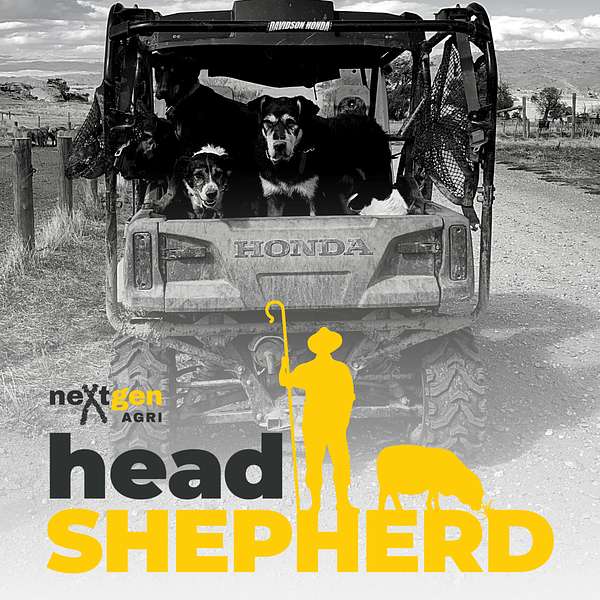
Head Shepherd
Mark Ferguson from neXtgen Agri brings you the latest in livestock, genetics, innovation and technology. We focus on sheep and beef farming in Australia and New Zealand and the people doing great things in those industries.
Head Shepherd
The key to lamb survival with Cathy Dwyer
This week on the Head Shepherd Podcast, we head over to Europe to chat with Cathy Dwyer.
Cathy is based in Edinburgh and splits her time between two roles. One at Scotlands Rural College, leading a team of researchers in Animal Welfare and Behaviour and the other at the Royal School of Veterinary Studies where they have a centre for Animal Welfare Education of which Cathy is a Director.
We invited Cathy onto the podcast because of her research into the maternal bond and maternal behaviour at birth in sheep. It has been one of her core research areas.
Cathy says they started out thinking about just the behaviour of the ewe. "Everyone thought it was the mothers fault if the lamb didn't survive, so we started [research] with the mother"
"One of the key things that we found, as part of that work using embryo transfer between two of our different Scottish breeds with different levels of maternal care, was that the lamb was really important... although we tended to blame the mother, the behaviour of the lamb was just as important."
"We've done some work looking at the heritability of lamb activity at birth. We know it is fairly heritable (25%) so we can select rams in particular that produce offspring that are active" Says Cathy. "So certainly there's a lot of potential to improve lamb survival by honing on what the lamb was doing, rather than just looking at the ewe"
Mark asks what measures they were using to measure lamb activity. "We looked in particular at what was the lamb was doing five minutes after birth... We had very specific scores that we asked farmers to collect [...] To make it more objective to farmers."
They've also been looking onto thermoregulation in the lamb.
"You have this downward spiral, they're born with their brown fat backpack of energy, but they've got to replenish that as quick as they can. So having a good suckling relationship with their mother sits in the middle of the success of the whole story."
"Some of the work we've looked at is how does that early thermoregulation start and how is that brown fat being used. There are differences in some of the animals that we've looked at in the thyroid hormones, which are involved in the onset of thermoregulation."
Another weak point in lamb survival at birth is in triplet lambs. Cathy says that triplet lambs are compromised on many fronts. "Singles and twins physiologically and behaviourally are on a continuum, whereas triplets drop off the bottom of the scale. And I think really understanding where that's coming from."
"A ewe has two uterine horns. When she has twins she has a lamb in either side, but when she has triplets theres going to be a second lamb in the second horn, and how does she deal with that? Theres going to be some sharing of the amount of space and amount of placenta. So there are anatomical differences between having twins and having triplets"
Mark and Cathy also cover maternal behaviours in hoggets/maidens and other research projects she's involved with.
There is plenty to be learnt from this podcast so thank you to C
Head Shepherd is brought to you by neXtgen Agri International Limited. We help livestock farmers get the most out of the genetics they farm with. Get in touch with us if you would like to hear more about how we can help you do what you do best: info@nextgenagri.com.
Thanks to our sponsors at MSD Animal Health and Allflex, and Heiniger Australia and New Zealand. Please consider them when making product choices, as they are instrumental in enabling us to bring you this podcast each week.
Check out Heiniger's product range HERE
Check out the MSD range HERE
Check out Allflex products HERE
